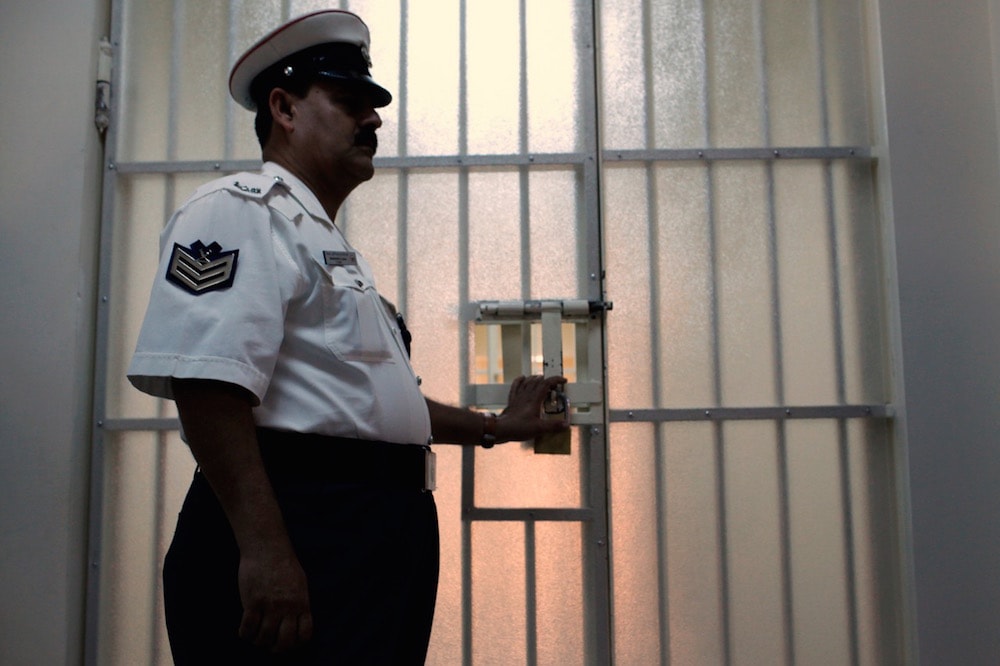In recent decades, the international community has worked to outline requirements for the treatment of prisoners and detainees. The UN Standard Minimum Rules for the Treatment of Prisoners, otherwise known as The Nelson Mandela Rules, are universally recognized as the minimum standards for the management of prison facilities and the treatment of prisoners. Other instruments focus on specific issues areas, such as the Bangkok Rules which outline the specificities of treatment afforded to women prisoners, and the Beijing Rules which focus on juvenile detention. Bahrain is one State whose prison conditions repeatedly fail to meet the numerous standards enshrined in each of these instruments of human rights.
History of the SMR
The Standard Minimum Rules for the Treatment of Prisoners (SMR) were originally adopted by the First UN Congress on the Prevention of Crime and the Treatment of Offenders in 1955. In 2011, the General Assembly established an open-ended intergovernmental Expert Group with the purpose of reviewing and possibly revising the SMR. The United Nations Office on Drugs and Crime (UNODC) acts as the overseer of the SMR thus closely cooperating with the Expert Group during the revision process. This Expert Group amended the rules and the General Assembly adopted this version in 2015. As recommended by the Expert Group, the rules were named to honor the extraordinary legacy of the late President of South Africa, Nelson Rolihlahla Mandela.
Overview of the Rules
The Mandela Rules cover a variety of principles regarding aspects of prisoner rights. The first rule proscribes that all prisoners shall be treated with respect due to their inherent dignity and value as human beings. The Rules further state that prisoners shall be protected from treatment such as torture or other cruel, inhumane, or degrading treatment or punishment, and no circumstances can provide a justification for this type of treatment.
The Mandela Rules also outline that young prisoners must be separated from adults (rule 11), and all prisoners should be provided with sleeping accommodations of a certain standard (rules 12, 13, and 21). In terms of healthcare, the Rules stipulate that the provision of healthcare is the responsibility of the government and a number of specific requirements concerning proper adequate treatment are outlined (rules 24-35). Other areas covered in the Mandela Rules include access to legal representation, investigations of all deaths in custody, disciplinary action and punishment, and protection of vulnerable groups.
Torture and Inhumane Treatment
Some of the most concerning violations of the Mandela Rules are the reports of torture experienced by prisoners in Bahraini prisons. Jau Prison, the largest long-stay male prison in Bahrain, has been notorious for its unacceptable treatment of its prisoners. In a report published by ADHRB, it was concluded that prison staff and policy continuously subject inmates to torture and humiliating and degrading treatment. Torture methods used included physical beatings, collective punishment, deprivation of food and sleep, the restriction of communication and visitation rights, and denial of adequate medical care. Notably, Building 10 of the facility is dubbed the “torture building.”
Female prisoners in Isa Town Prison have also suffered an ongoing trend of harassment and intimidation, as noted by UN Secretary-General António Guterres. Numerous female prisoners have been subjected to reprisals, intimidation, and physical abuse partly due to the international attention that their cases have been given. Although the Mandela Rules proscribe that intrusive searches should only be undertaken if absolutely necessary, female prisoners are routinely subjected to degrading searches without clear justification.
Overcrowding and its Consequences
Severe overcrowding––itself a violation of the Mandela Rules––results in unhygienic living and sleeping environments, further exacerbating any pre-existing health conditions for inmates and creating new ones, too. Within both Jau Prison and Dry Dock Detention Centre, this has led to a number of concerning issues and consequential violations. Inside Jau Prison, despite specific pre-determination of certain buildings for minors, juveniles are forced to share cells with adults, which violates the requirement of a separation of prisoners. Although separate buildings for young adults were originally designated to ensure proper separation of prisoner populations, severe overcrowding has led to a mixing of adults and juveniles. This results in a disregard of the special protections afforded to young inmates.
Overcrowding has also led to a significant shortage in necessary medicines and services. In the absence of much-needed medical resources, there has been a continuous denial of and restriction of access to medical care. In Jau Prison, the clinic is unable to handle even emergency situations; the most severe cases are often left untreated. Scabies outbreaks have occurred in both Jau Prison and Dry Dock Detention Centre affecting up to half of the inmate populations. In both cases, little medical attention was provided.
A Call for Improved Conditions
The Mandela Rules are a fundamental instrument for the protection of prisoners’ rights. Insofar as the rights of prisoners in Bahrain are not upheld, Bahrain is in violation of the Mandela Rules. NGOs and rights groups, including Amnesty International and Human Rights Watch, as well as the United Nations have all expressed their concern over the prison conditions in Bahrain. We call on the Bahraini authorities to bring its prison conditions into line with the Mandela Rules by stopping the use of torture and other inhumane treatment, reducing overcrowding, giving separate facilities to adults and minors, and providing access to adequate healthcare.





